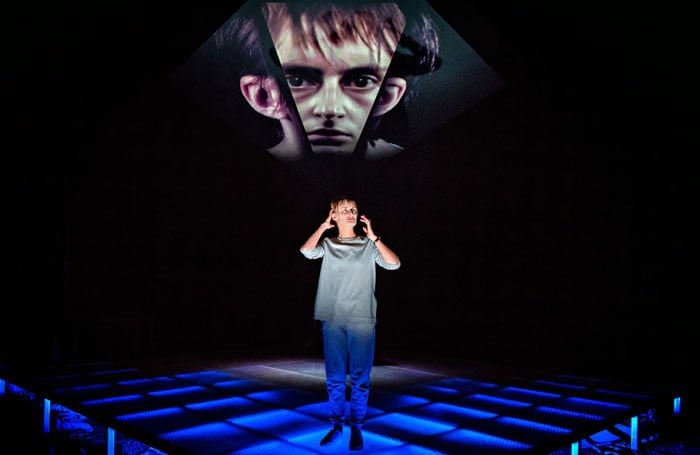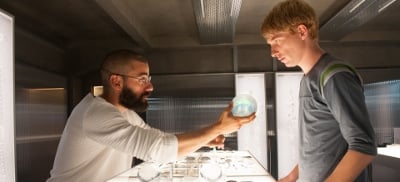
To celebrate the 200th anniversary of Charlotte Brontë’s birth, West Yorkshire Playhouse aimed to bring her masterpiece Villette to a modern day audience. Unfortunately, they went above and beyond, taking the tale way past 2016, into an uncomfortably sterile, post-modern world.
The stark set design was ominously, although fluorescently, lit and overseen by a looming ‘Big Brother’-esque screen. But this harsh scene was brought to life by the five-strong ensemble, humming, harmonising and creating a backing track to the action. In fact, there was rarely a moment of background silence at all.
Much to my dismay, this background was not enough to inject life, or indeed emotion, into the lead character Lucy Snow. Reimagined as an inhuman clone and yet afforded with 90% of the scripted lines, Laura Elsworthy’s animation of Lucy was unfortunately all performed on a single level. Fraught with panic, as if straining every tendon at once, the whiney tone of voice was far from comfortable to watch, and even harder to sympathise with. Starting on such a high level of panic, there was little room for development. Thus a lack of range held the story back.
Admittedly, the final scene of Act One saw the nature of the piece shift dramatically toward naturalism, centred on a favourite theatre trope: a family Christmas. This was the first honest, human interaction between Lucy and the other characters and set the precedent for the second half. At last the ensemble were put to good use (beyond some of the ridiculous interpretive dance moves they were earlier charged with.) Even Lucy began to show some humanity; the dramatist’s intention of staging ‘the redemptive power of love’ became clear.
Unfortunately, the cast’s skills were confined within a rather crudely written script. Outbursts of emotion were, at times, rendered comical by their unprecedented wording. There was an uneasy balance between Brontë-esque poetic narration, post-modern sci-fi jargon and awkward dialogue. Something for everyone, when perhaps a single stylistic strand would have proven more fruitful.
Within its own post-modern, robotic realm, the production succeeded. However, I struggled to see what had been gained through this particular process of adaptation. Had I been anticipating a sci-fi extravaganza, I might not have been so disappointed; but the tenuous connections drawn to Brontë provided little more than a famous name. Adaptation ought to highlight a resonant undertone from a text and add something valuable to a critical tradition. In this instance, the alliance with the original Villette merely gave away the ending.
Filed under: Theatre & Dance
Tagged with: Bronte, Charlotte Bronte, leeds, review, theatre, Villette, West Yorkshire Playhouse



Comments